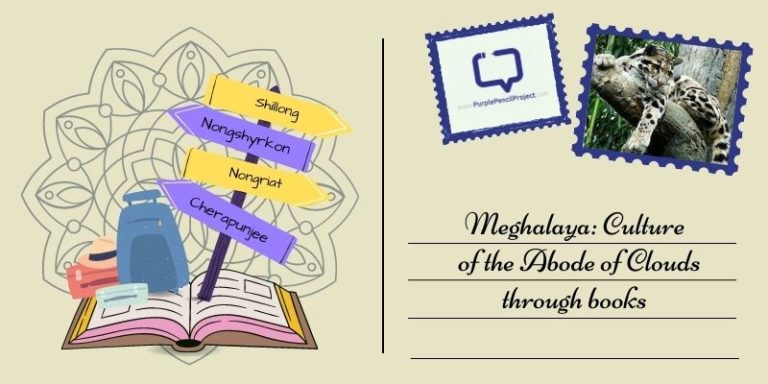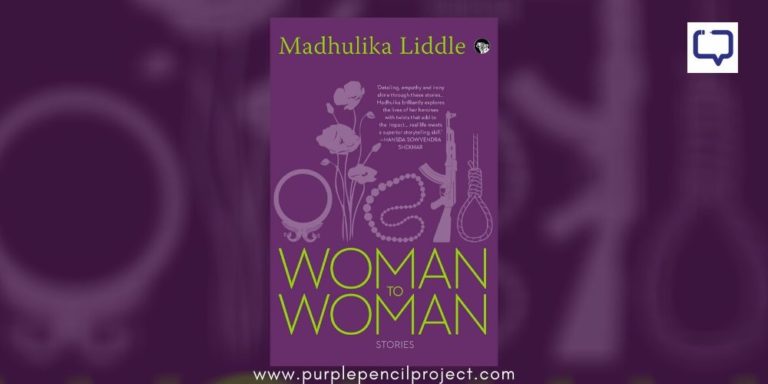Woebegone’s Warehouse of Words is a dystopian fantasy where humans are the Speakers but rendered mute. Must you speak? Then buy a Word. Yes, the Words are all stacked up in the titular Warehouse, manned (rather worded) by Woebegone, who itself is a Word. There is a zoo next door where Thesaurus Rex lives in a cage.
When a Word gets ordered, it is packed into a drone and sent to the Speaker who won’t be able to speak until the Word reaches him/her. If Words don’t get ordered, they fade away:
Words needed their Speakers. They needed to be written and spoken. Remembered like they mattered. Words that hadn’t been thought of shrivelled and faded, till they weren’t there at all. Being ill wasn’t really an option in the warehouse.
People of a language; quite literally
Woebegone’s Warehouse of Words is an eerie yet a relatable concept, when you swivel your neck around and have a gander at the current political climate of not only India but pretty mush two-thirds of the world. Asha and Zeb, two 15 year-old friends get into a hot soup when Chasers find them drawing graffiti upon the walls. Asha runs, but Zeb is caught. What happens next?
The Words look like the Speakers but they don’t age the same way. When cut, they bleed blue. In the Warehouse, we meet Cool (built like a noodle, has long hair and buddies up with other popular Words like LOL and Awesome,) who’s arrogant and a bully. There is Wonderful, Sweltering and Gossamer. Nice is dead and Brunt is missing. When the Words find Gossamer half-dead and starving, they are pushed into taking an unprecedented decision.
But how did Words come to be locked up in a Warehouse that’s always running low on ration and facilities like air-conditioning are bust? They had been collected in a ‘Gathering’, about 218,632 of them herded from the wild and stuck into aisles upon aisles arranged alphabetically. Now there are no woods or trees, just acres and acres of barren land.
Reading between the words and the lines
Woebegone’s Warehouse of Words raises many pertinent questions. Gunther Glib, who runs Word Bloc is a tyrant. And because tyrants all over the world know no loyalty to humanity or religion or geography, Kapadia writes:
Every statue of Gunther Glib looked different. In some, he had a Grecian nose, in others a wider bridge; a high forehead, or sometimes a low one, but always the hard eyes – though maybe that was an effect of the stone.
Gunther Glib is cast in the mould of a tyrant who speaks the rounded-off language of a PR person. He is a supreme leader who has ended the age of Before and has promised the Speakers an age of After.
Ideas of ‘greater good’ and ‘welfare’ are bandied about. He talks about keeping Words safe. And yet, a memo circulating in the Warehouse turns into ‘UseLess Words’ from ‘Use Less words’, indicating a culling.
The Words that haven’t been ordered need to be enlisted, ‘special arrangements’ will be made for them. And like any despot, Glib has cast a tight control upon the place where young minds spend a significant amount of time: schools.
The schools too are silent zones and only teachers can speak. The signage of ‘Silence is Golden’ is hung in the hallways. And this is how teachers speak: “The Speakers are life givers. We give the Words life every time we say their names out loud and write them down. The Words might look like us, but they have ink running in their veins, not blood. They need us to speak.” The good old adage of ‘Divide and Rule’ is at play here.
Words and the the sounds of Freedom
Woebegone’s Warehouse of Words calls out all dissent-haters of the world. It seeks to sow the seeds of freedom in the young minds through the narrative tropes of a control-seeking tyrant.
This is one of those rare books I read through the glass of animation. I imagined the characters as brightly-decorated cartoons, closing my eyes to see their blue blood splashed against the red of my tightly closed eyelids.
That was the only way to read and enjoy Woebegone’s Warehouse of Words as it goes way too deep into reality for my comfort. If you understand and equate it with the current political climate of any country, it will send a prickle of worry down your neck.
In a note at the end of the book, Kapadia mentions that the inspiration to write this book came to her when she heard about an entire language faded away as its last speaker died.
The idea morphed from a short story into a full-length novel. Although there is a biblical passage in the beginning of the book, mentioning the words and the speakers, the fibre of the story cuts through the current atmosphere like a needle.
Read it. For the wonder and the wisdom.





















